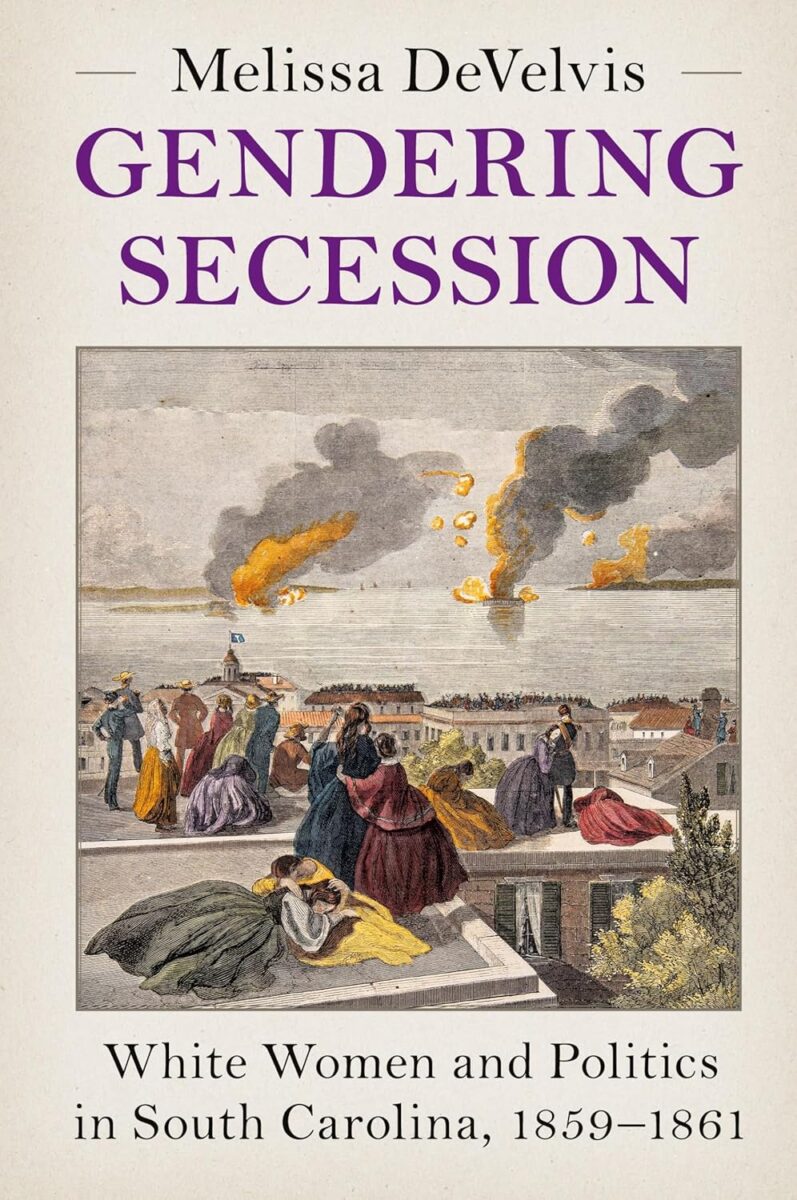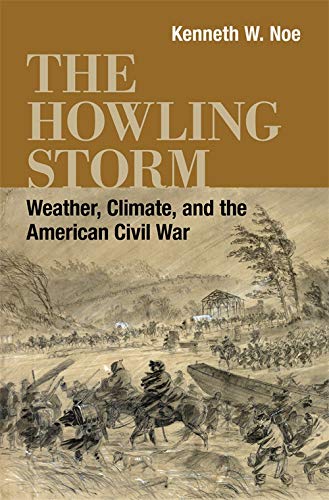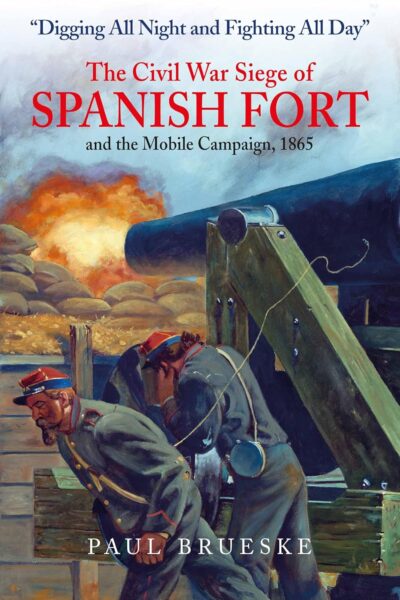“South Carolina is too small for a republic, but too large for an insane asylum” quipped James Louis Petigru, a prominent but politically marginalized attorney in Charleston, as his state fled the Union in December 1860 and triggered a wider revolution across the Deep South. Every one of the citizen-inmates who spearheaded South Carolina’s leap into the unknown—every state officer, legislator, or member of the convention that severed the Union—was a white male. Melissa DeVelvis shifts the focus to those elite white women, perched securely atop hierarchies of race and class, whose letters or diaries survive.
DeVelvis finds that her subjects were ardent patriots, just like their menfolk. They too vowed to resist Yankee aggression. But the women were more inclined than the men to suspect that the great cause might prove dangerous. They dreaded the potential loss of husbands and sons. They suspected that the enslaved only pretended to be satisfied with their lowly lot. DeVelvis certainly establishes that women had a distinct perspective: they used “religious and emotional ideas of femininity” to express their anxieties (127). They may have tried to legitimize feelings that some men, bound by gender conventions that celebrated honor and deplored cowardice, were unable or unwilling to articulate.
South Carolina women were not allowed to sully themselves by participating in the political hurly-burly or to have “political beliefs” (3). They dared not appear to emulate the unsexed harridans from the North who used the public arena to promote abolitionism or feminism. These limitations obliged those at the center of this study to apologize, even in the privacy of their letters or diaries, for trespassing into forbidden realms. But as the crisis intensified, apologies diminished. It was difficult to maintain gender decorum while the world was being turned upside down.
Without doubt, DeVelvis has carefully mined her sources and explicated their common threads. Her composite portrait brings both advantages and disadvantages. Individuals blur when the emphasis is on the collective. She often mentions, for example, the widowed Keziah Brevard, isolated on a remote plantation where she commanded over two hundred enslaved laborers (among them some who displayed alarming “impudence”). Brevard was a conventional patriot who would “die sooner than submit,” but she simultaneously deplored the rupture of “our dear country.” She feared that secession might end badly, and she pleaded with God to “save us—spare us.” Brevard offers much useful grist for the composite mill; her anguished laments in their original form provide a memorable case in point for this book’s major themes [A Plantation Mistress on the Eve of the Civil War: The Diary of Keziah Goodwyn Hopkins Brevard, 1860-1861, edited by John Hammond Moore (Columbia: University of South Carolian Press, 1991), quotations on 33, 75, 77, 81, 88-89, 92, 98].
DeVelvis sees her book as a needed supplement to “secession scholarship” (203). She follows Michael Woods by “bringing into dialogue emotions and political history” (19), and she amplifies Jason Phillips, who shares her interest in discovering what people anticipated during the fateful years before the war started. DeVelvis, however, faults William Freehling, who wrote the magnificent two-volume history of the South’s tortured route to secession, for making women “an afterthought” (10). DeVelvis returns the favor by ignoring what Freehling and other likeminded historians have revealed about the broader situation. At no point does she allow that secession might have been a near thing rather than the South’s inevitable destiny. Her letter writers and diarists sneered at Virginia’s reluctance to follow South Carolina’s lead, but DeVelvis chooses not to consider why so many Upper South citizens, men as well as women, worried about matters the hotheads considered unmanly—that the Yankees might prove to be dangerous antagonists in a shooting war, and that such a war had the potential to upend the slave system. The “Black Republican” enemy that so obsessed South Carolinians needs to be identified here as a delusion: Leading Republicans had no plan or wish to promote abolition in the states where slavery existed, and they were not about to unleash John Brown-type raids. Abraham Lincoln, who refused to apologize and beg forgiveness for having won the presidential election, is entirely offstage in this volume except as a malevolent caricature.
Daniel W. Crofts, Professor Emeritus of History at The College of New Jersey, has long studied the North-South sectional crisis that led to the Civil War. His 2016 book, Lincoln and the Politics of Slavery: The Other Thirteenth Amendment and the Struggle to Save the Union (University of North Carolina Press), was awarded the University of Virginia’s Bobbie and John Nau Book Prize in American Civil War Era History.
Related topics: women





